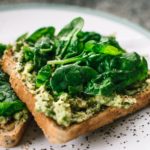Healthy Grocery Shopping
Grocery shopping is something we all have to do, even though choosing the right foods can be very hard indeed. To assist you with your healthy grocery shopping, the tips below can indeed help make things easier than ever before:
Never go grocery shopping on an empty stomach.
- Select canned fruits and tuna that are packed in water, not oil or syrup.
- Look at the labels for the words “hydrogenated” or “partially hydrogenated”. The earlier you see them appear on the list, the higher the amount of unhealthy trans-fatty acids the food will contain.
- Don’t buy turkey with the skin on it, and if you plan to buy chicken – buy chicken breast meat.
- When you select frozen dinners, select those that are not only low in fat, but low in sodium and cholesterol as well.
- If you aren’t consuming enough dairy products, go with calcium-fortified orange juice instead.
- Go for whole grain bread, cereals, and rolls.
- Give Cantaloupe a try. With just 95 calories, half of the melon will provide more than a day’s supply of Vitamin C and beta-carotene.
- Don’t be tricked into buying yogurt covered by nuts or raisins, as the coating is normally made of sugar and partially hydrogenated oils.
- Get some low-fat treats, such as pretzels, ginger snaps, and angel food cake.
By following the above tips when grocery shopping, you’ll avoid the bad foods and get those that you need. There are many different healthy foods at the grocery store, all it takes is the willpower to go past the bad foods and on to the good ones.
DISCLAIMER:
This information is not presented by a medical practitioner and is for educational and informational purposes only. The content is not intended to be a substitute for professional medical advice, diagnosis, or treatment. Always seek the advice of your physician or other qualified healthcare providers with any questions you may have regarding a medical condition. Never disregard professional medical advice or delay in seeking it because of something you have read.
Since natural and/or dietary supplements are not FDA-approved they must be accompanied by a two-part disclaimer on the product label: that the statement has not been evaluated by FDA and that the product is not intended to “diagnose, treat, cure or prevent any disease.”





